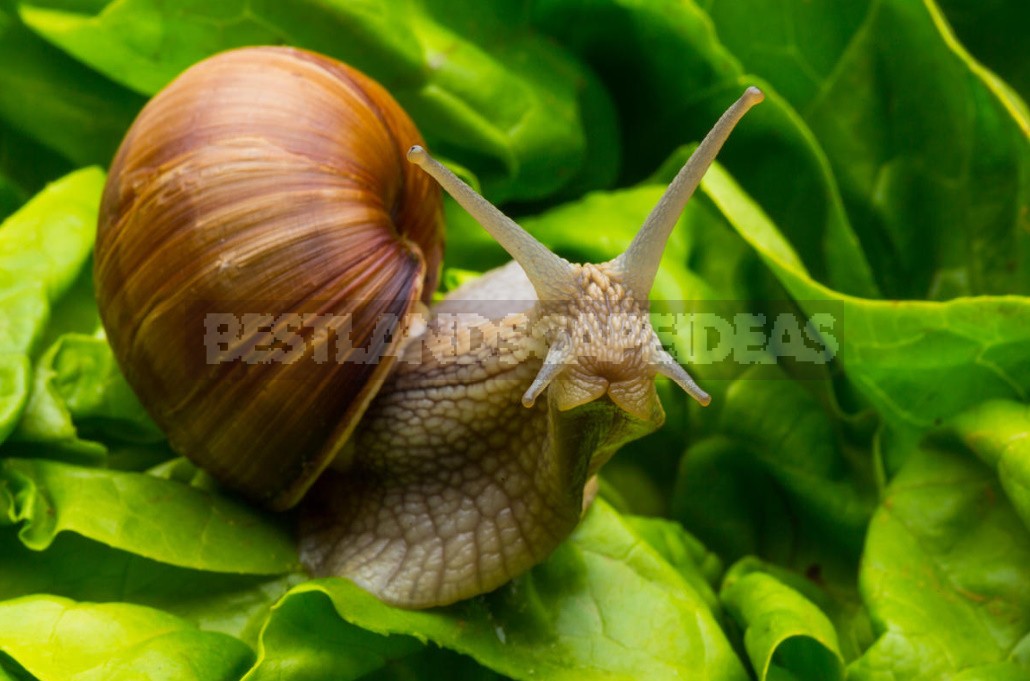
The path to a decent harvest is often thorny and tortuous, so the cottager has to solve a lot of problems during the season. If such routine tasks as watering, weeding and fertilizing can still be somehow planned, then garden pests are forced to stay in a state of alert from spring to autumn. What are some Helix Pomatia, sweeping away everything in its path! Do you also not know how to get out of the captivity of the gastropod invaders? We will help you solve this problem.
Intruder
In recent years, there has been a real invasion of Helix Pomatia. It would seem, where do these heat-loving mollusks come from?

Helix Pomatia continued to feast and reproduce in the natural environment, and the global warming of the climate has only benefited them. They are firmly established in many areas. But if a meeting with Helix Pomatia on a walk in the Park can only cause emotion, then the visit of such an uninvited guest to the dacha should alert and make you immediately take action.
Description of the pest
It is easy to recognize Helix pomatia. Its body is divided into a head with a pair of tentacles and a so — called leg 4-5 cm long (when stretched-up to 8-9 cm) of a brownish-beige hue. On top of the right-hand shell with a diameter of 3-5.5 cm yellow-brown or whitish-brown shade,which is decorated with alternating dark and light stripes on the first 2-3 turns. Shell shades may vary slightly depending on the snail’s habitat and diet.
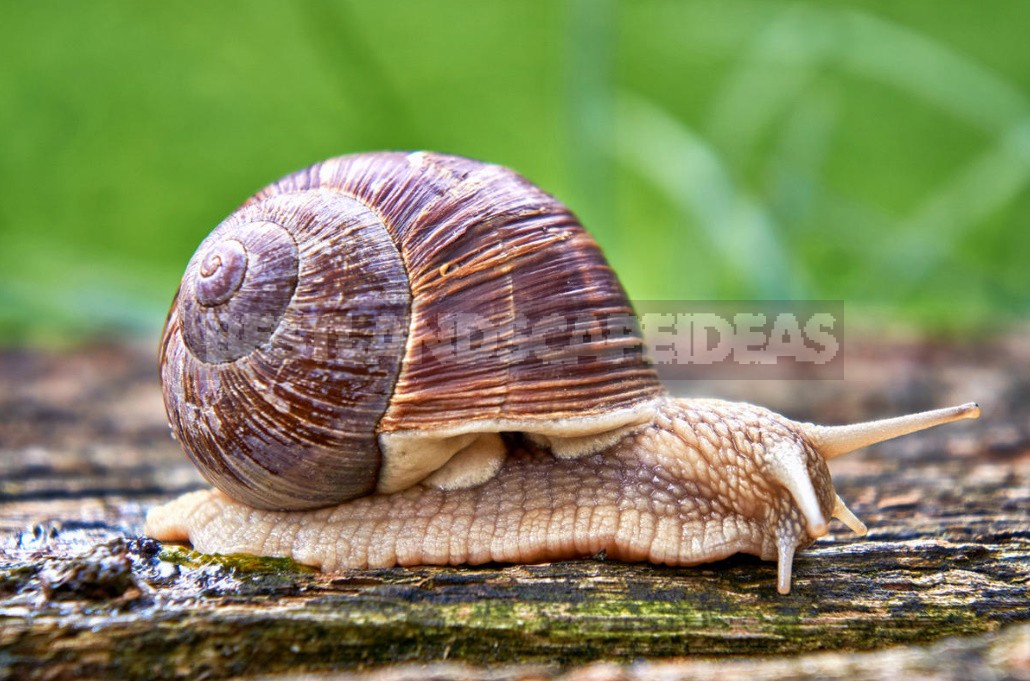
The main character of our story is the largest snail in Europe. In the absence of predators, it can survive in nature up to 20-30 years. This gastropod leads an active lifestyle from early spring to autumn frosts, and experiences winter inside its cozy shell, burrowing into the ground to a depth of 30 cm.
Helix Pomatia are omnivorous and incredibly voracious, and when a Horde of such mollusks appears on the dacha, the gardener grabs his head, so much damage to green spaces is caused by these creatures. The shellfish’s favorite delicacy is young shoots of grapes, but to satisfy its insatiable appetite, it will not disdain any other plants — neither the juicy greens of vegetables and flowers, nor berries and fruits.
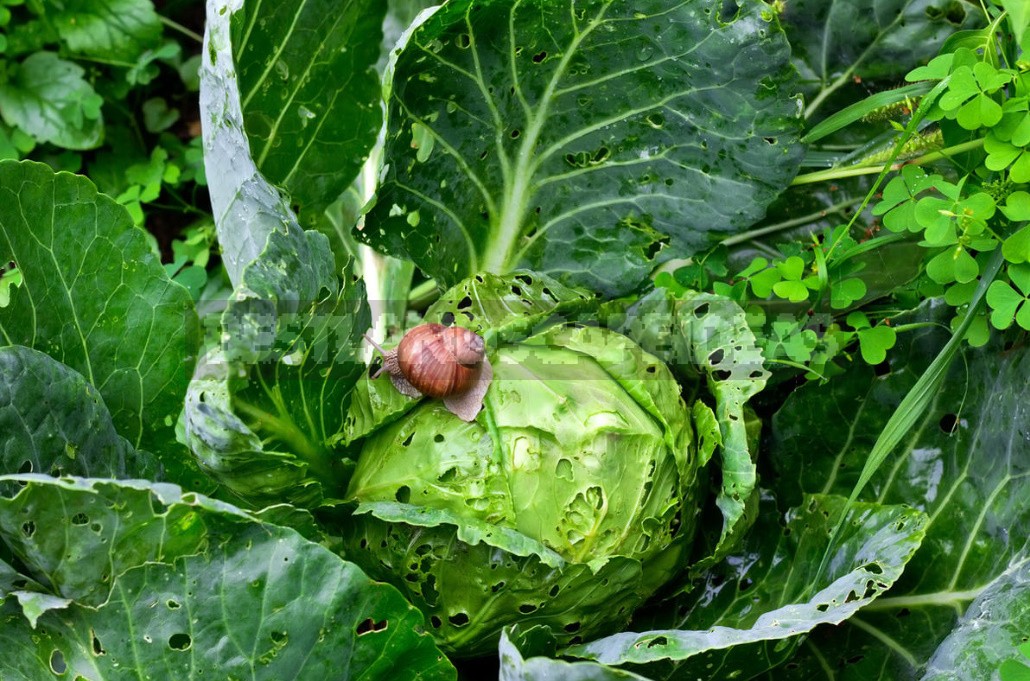
Control measures
There are many ways to deal with Helix Pomatia. Which one to choose is up to you. It all depends on the amount of time you are willing to devote to fighting gastropod pests, as well as their number on the site and the extent of damage to your green spaces.
Manual collection
If you live in a private house constantly and from spring to autumn keep your finger on the pulse of your green Pets, regularly collect snails manually-sooner or later you will destroy their colony. This method is suitable if there are few snails on the site.
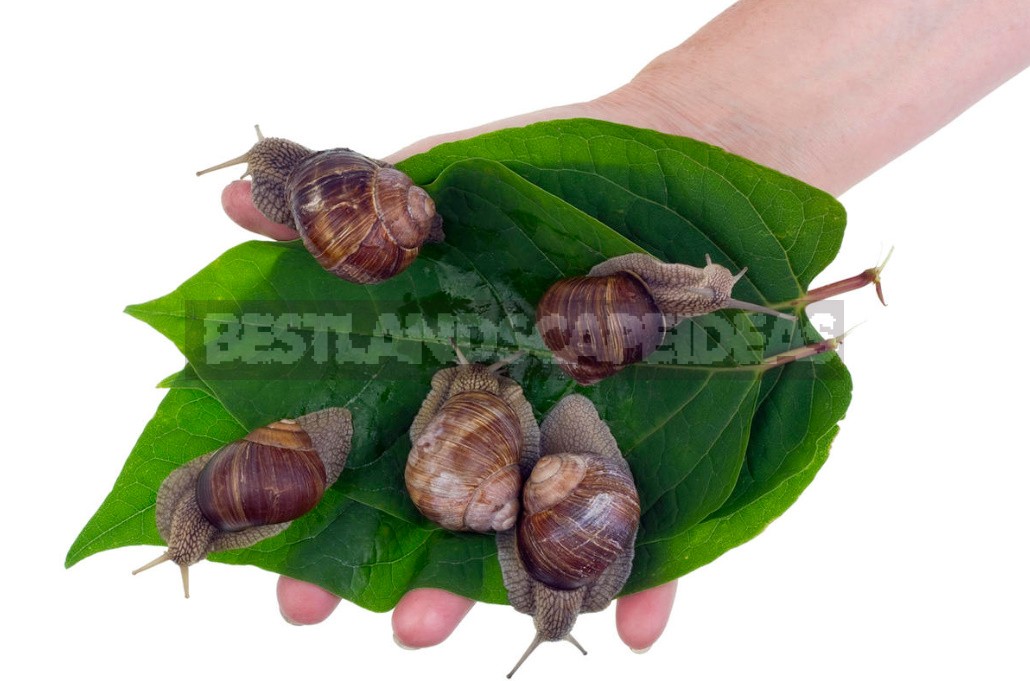
Since shellfish are mostly nocturnal, and during the day they hide in nooks and crannies (shaded, cool, and humid), try to outwit them. Lay out small pieces of slate and planks in the garden or leave piles of weeds on the paths — they will serve as a salvation for snails from the burning sun rays. Periodically collect snails from under the abandoned shelters, and how to deal with them after — tell your imagination.
Baits
You can play on the subtle sense of smell of gastropods and lure them into fragrant traps. For this purpose, glass jars, plastic bottles with a cut-off top and any other handy containers are suitable. As a filler, use beer, compote, old jam diluted in water, natural milk, whey or kefir. Snails are not indifferent to such treats.
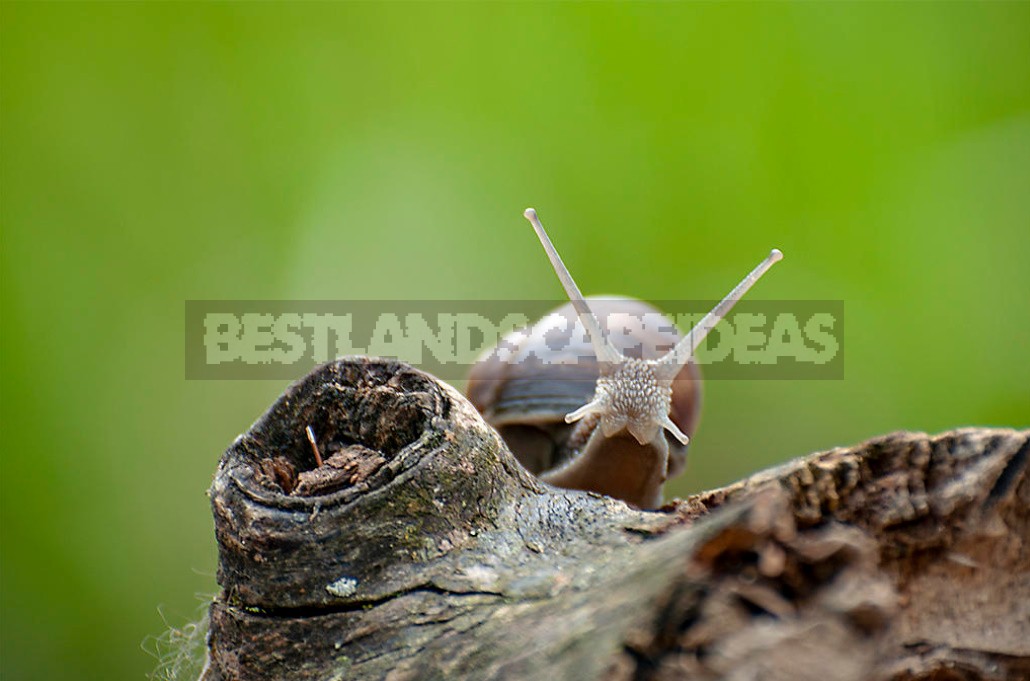
In places where pests are most common, dig up containers with the liquid so that their neck is at the level of the soil. The gastropods will smell the yummy food a mile away, climb into the jar, and will not be able to get out of it. Periodically remove drowned pests from the traps and from time to time change the contents for a new portion of treats.
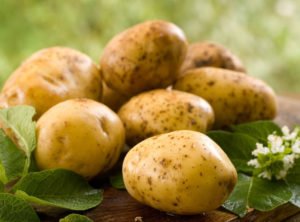



Leave a Reply